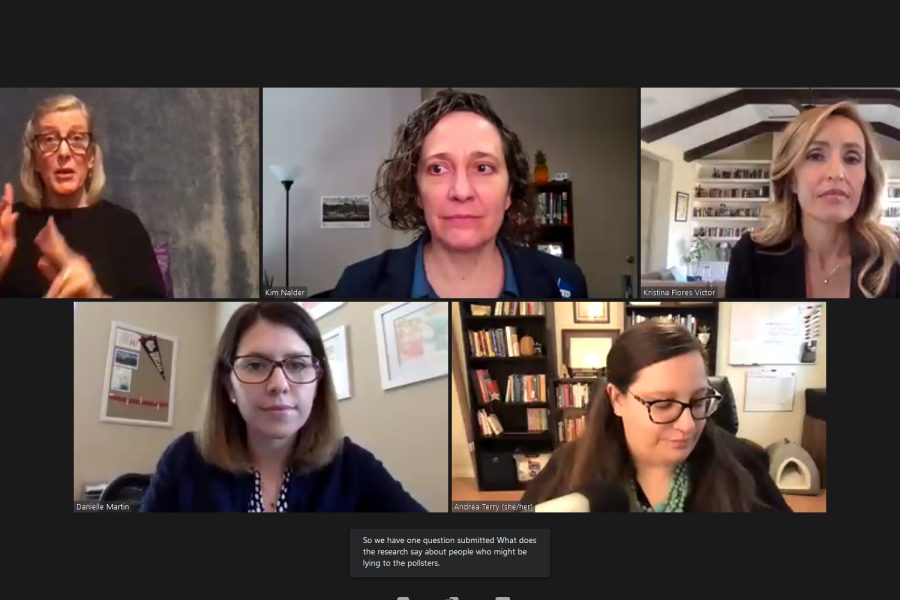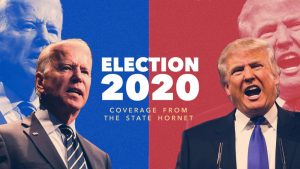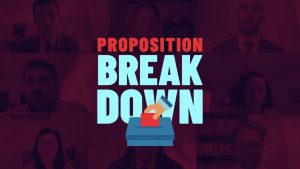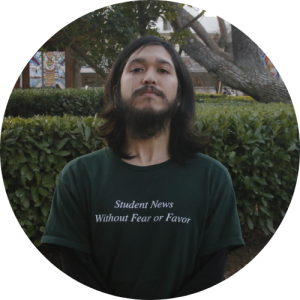Sac State professors discuss misinformation in the 2020 election
‘The actual president of the United States is engaging in this disinformation’
Sac State Political Science Professors Kim Nalder, Kristina Flores Victor, Danielle Martin and Andrea Terry hold a question and answer section at the end of a webinar hosted by Friends of the Library on Wednesday, Oct. 28, 2020. They discussed strategies on avoiding misinformation during an election season. Screenshot taken by Michael Pacheco via Zoom.
October 30, 2020
Sacramento State’s Friends of the Library and The Project for an Informed Electorate (PIE) held an informative election panel, “Making Sense of an Election Like No Other,” Wednesday via Zoom.
Speakers included Danielle Joesten Martin, an associate professor of political science; Kristina Flores Victor, an assistant professor in political science; and Andrea Terry, an assistant professor of rhetoric.
Kim Nalder, political science professor and PIE executive director, led the panel and spoke about misinformation that can spread about the election and candidates.
Martin said that misinformation can take several different forms, such as only taking in certain news sources, taking one’s own anecdotal evidence as a basis toward how everyone else may or may not be affected by certain policies, or outright distrusting polling data due to errors or a deviation from the expected result.
She said that influence from these factors leads to a situation where future polls and elections themselves are affected.
“You always want to keep in mind that polls are based on probabilities,” Martin said. “They’re based on statistics, so they are only going to tell you a snapshot in time when that poll was taken.”
The panelists agreed that having a wide variety of different polling sources and scrutinizing how polls are conducted is important.
“If it is polls you are dealing with, then I would possibly look at the source of the poll, who commissioned it, when it was done, how many people are in their sample, and what is their margin of error,” Victor said.
Story continues below tweet.
Nalder says that it is difficult to deal with misinformation because, “false stories are shared more often than true stories,” regarding the election. Additionally, she says that @realDonaldTrump is the biggest spreader of misinformation for this election. @TheStateHornet
— Piper Haitsuka (@PHaitsuka) October 28, 2020
Nalder said some assume the right to free speech means a right to misinform, which can lead to misinformation to be taken as fact, especially when it comes from a source considered to be an authority.
“Another really particular problem this year is that not only do we have a disinformation coming out from foreign sources and other malevolent forces, but the actual president of the United States is engaging in this disinformation,” Nalder said.
Martin said the groups most vulnerable to consuming misinformation as fact are those with little-to-no college education and political extremists on either side of the ideological spectrum.
Martin also said that if an individual is active in politics and feels that their “side” is being threatened in some way by the other, they become more likely to fall victim to misinformation campaigns.
Story continues below tweet.
“We’re seeing this demonization of the other party going on,” says Nalder. More people have been sharing around ‘fake news’ and may not believe information from legitimate press sources, she says. @TheStateHornet pic.twitter.com/qLA253OCVn
— Piper Haitsuka (@PHaitsuka) October 28, 2020
Victor, who presented information about the voting patterns and distribution of Latinx voters across the country mentioned that the president’s relatively lax reaction and response to COVID-19 led to a drastic decrease in support from Latinx voters.
“Approximately 70% of the Latino electorate are saying that they are very motivated to turn out to vote, and around 80% are reporting that they have a plan to vote and are planning to vote,” Victor said, citing Latino Decisions polling.
Story continues below tweet.
“The younger Latino electorate seem to favor @JoeBiden over @realDonaldTrump,” said Victor. She goes on to say that the gender gap for Latino and Latina voters in states like North Carolina, a swing state, differ by about 20%.@TheStateHornet
— Piper Haitsuka (@PHaitsuka) October 28, 2020
Terry said religion has impacted the presidential election, stating in her view Trump’s priority is appealing to his base of conservative evangelical Christians while Biden’s campaign projects that faith should be of the individual and separate from politics.
“We have Biden’s civic republicanism, and we have Trump’s religious nationalism, and so it’s important to think about what the end result of either of those would be and which vision we wish to see for our nation moving forward,” Terry said.
Terry said religious nationalism refers to using evangelical Christian values and beliefs as the driving force for making policies while civic republicanism refers to keeping religious beliefs and politics separate while still allowing an individual’s personal beliefs be the driving force of their morality in regards to policies.








































































































































